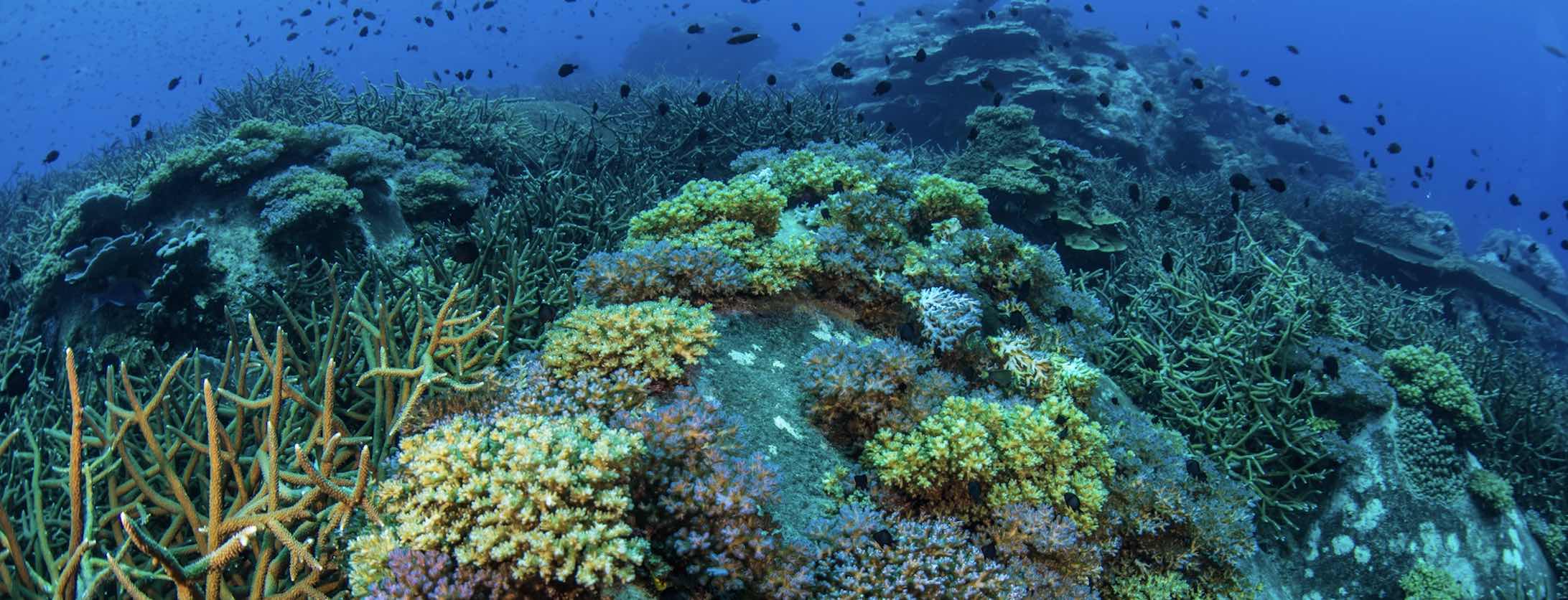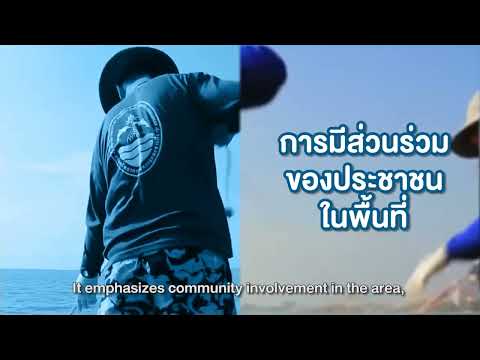
Photo:
The project aims to integrate climate change adaptation into marine and coastal area related planning and budgeting in the Gulf of Thailand with a focus on agriculture, fisheries, and tourism. The project builds on Thailand’s National Adaptation Plan (NAP) process and focuses thematically on marine and coastal areas and sub-national level adaptation planning. The project’s objectives are to be achieved through three key outcomes: enhancing capacities for climate risk-informed marine and coastal area development planning; strengthening NAP implementation and mainstreaming adaptation in planning and budgeting in marine and coastal areas; and developing financing strategies for climate adaptation.
This GCF NAP Readiness project is expected to provide an important contribution to the implementation of Thailand’s National Adaptation Plan (NAP), prepared by the Office of Natural Resources and Environmental Policy and Planning (ONEP), which provides an overarching planning framework for addressing climate change adaptation.
- District
- National
- National Governments
- Thailand Office of Natural Resources and Environmental Policy and Planning
The project goals include developing participatory and integrated marine conservation and coastal rehabilitation plans, promoting nature-based and sustainable tourism while enhancing a better understanding of climate change impacts and vulnerabilities of the tourism sector, promoting sustainable agriculture, and strengthening disaster and climate risk reduction in communities. These build upon the existing NAP process led by the Office of Natural Resources and Environmental Policy and Planning (ONEP). The GCF resources will be used to address the main gaps in integrating climate change adaptation needs in marine and coastal area planning and budgeting and will enable the Royal Thai Government (RTG) to:
• Build and strengthen capacities for integrating climate change adaptation in marine and coastal areas planning, budgeting, and monitoring processes and systems in both national and sub-national government
• Produce policy-relevant and actionable climate risk assessments for marine and coastal zones
• Design new methods, tools, and information systems to effectively inform decision-making considering climate risks to development in an integrated fashion and
• Formulate financing strategies and mechanisms for scaling up adaptation in marine and coastal zones by sub-national governments, with a focus on private sector engagement in natural resource management
The project “Increasing resilience to climate change impacts in marine and coastal areas along the Gulf of Thailand” is designed to contribute to the implementation of Thailand’s National Adaptation Plan (NAP). The main objective of the project is to integrate climate change adaptation into planning and budgeting for marine and coastal areas. The project aims to address barriers that hinder information, knowledge, and coordination for adaptation planning; technical capacities for integration of risk informed approaches in planning and budgeting; and lack of options to attract financing for climate change adaptation, particularly from the private sector.
The project complements other initiatives supporting the NAP implementation in Thailand. Thailand’s NAP (draft prepared in 2018) identified six key sectors: (1) water management; (2) agriculture and food security; (3) tourism; (4) public health; (5) natural resource management; and (6) human settlement and security. This project will focus on addressing gaps of current support programmes. The project will work towards improving climate-responsive natural resource management through the integrative approach of enhancing adaptation planning and budgeting in key marine and coastal economic sectors, targeting agriculture, fisheries, and tourism. The project will focus on 18 coastal provinces along the Gulf of Thailand. The overall timeline of Thailand’s NAP implementation allows this project to utilize best-practices and information from other interventions, to expand the knowledge-base and regulatory framework, particularly for the sub-national level, and to revise and update Thailand’s NAP.
PROJECT RATIONALE
Marine and coastal areas of the Gulf of Thailand are expected to experience significant impacts of climate change, with increase in extreme events, sea-level rise, climate induced erosion, drought, and flooding that affect local tourism, agriculture, fisheries, natural resources and create additional stress on land and water resource management. Vulnerability is heightened due to the dependence on a limited number of economic sectors, namely agriculture and tourism. Due to their low coping capacity, limited awareness of and high exposure to climate change risks and impacts, women, young children, the elderly, the disabled, and economically marginalized social groups are the most affected by unmitigated climate change impacts and fewer income and employment generation opportunities. Therefore, there is a clear need for capacity building in communities, decision-makers, and the private sector to raise awareness about climate change risks and facilitate adaptive development planning.
PROJECT UPDATES
The project has delivered the following results under the three outcomes:
Conducted climate change impact projections, risk, and vulnerability assessment in 4 selected provinces: Rayong, Petchaburi, Surattani and Songkhla
Climate risk and vulnerability assessments have been conducted on coastal and marine resources including three key economic sectors - agriculture, fisheries, and tourism.
A climate information dissemination platform has been developed and is integrating the results of the climate risk and vulnerability assessments.
Thailand’s 1st National Adaptation Plan (NAP) was endorsed by the National Committee on Climate Change Policy (NCCC), chaired by the Deputy Prime Minister, on 19th November 2018
Financing strategies for climate change adaptation in marine and coastal areas identified and developed
A guideline for the integration of climate adaptation and natural resources conservation practices into certification schemes and draft concept notes of climate financing strategy were developed after a stakeholder forum
A workshop on “Financing strategy for implementation and scaling up of NAP priorities in marine and coastal areas on the Gulf of Thailand' was organized back-to-back with Best Adaptation practices in certification schemes in Songkhla province
Inception report of analysis or gender and vulnerable groups completed
The Department of Climate Change and Environment (DCCE) joined as an Implementing partner on 15 August 2023
A workshop entitled “Inclusive, gender-responsive value chain analysis (IVCA) for Climate Change Adaptation” organized to present the results of the climate change projections and vulnerability assessment in marine and coastal resources including agriculture, fisheries and tourism sectors
Outcome 1: Enhanced capacity and knowledge to enable climate risk-informed marine and coastal area development planning at the sub-national level;
Outcome 2: Strengthened existing NAP implementation and mainstreamed adaptation in planning and budgeting in marine and coastal areas;
Outcome 3: Financing strategies for climate change adaptation in marine and coastal areas identified and developed.



